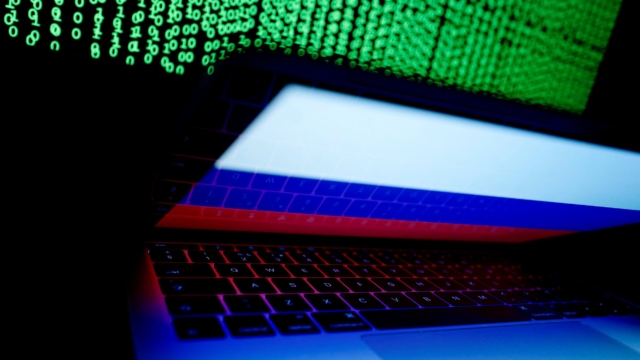President Joe Biden has called on private companies and organizations in the U.S. to “lock their digital doors,” claiming that intelligence suggests Russia is planning a cyber attack on the U.S.
The U.K.’s cyber-authorities are supporting the White House’s calls for “increased cyber-security precautions,” though neither has given any evidence of a Russian cyber scheme.
Russia has stated that such accusations are “Russophobic.”
However, Russia is a cyber superpower with a serious arsenal of cyber tools, and hackers capable of disruptive and potentially destructive cyber attacks.
“Biden’s warnings seem plausible, particularly as the West introduced more sanctions, hacktivists continue to join the fray, and the kinetic aspects of the invasion seemingly don’t go to plan,” says Jen Ellis of cyber-security firm Rapid7.
Here are the hacks that experts most fear.
BlackEnergy – targeted critical infrastructure attack
Ukraine is often described as the hacking playground of Russia, which has carried out attacks there seemingly to test techniques and tools.
In 2015, Ukraine’s electricity grid was disrupted by a cyber attack called BlackEnergy, which caused a short-term blackout for 80,000 customers of a utility company in western Ukraine.
One year later, a cyber attack known as Industroyer took out power for about one-fifth of Kyiv, the Ukrainian capital, for about an hour.
The U.S. and EU named and blamed Russian military hackers for the attacks.
“Russia could absolutely try to execute an attack like this against the West as an illustration of capabilities, and to make a statement,” says Ukrainian cyber-security responder Marina Krotofil, who helped investigate the power cut hacks.
“However, no cyber attack against a power grid has resulted in an extended interruption of power supply. Executing cyber attacks on complex engineering systems in a reliable way is extremely difficult, and achieving a prolonged damaging effect is sometimes impossible due to in-built protections.”
Experts including Krotofil hypothesise that this could backfire on Russia, as the West most likely has a decent foothold in Russian networks.
NotPetya – uncontrollable destruction
NotPetya is thought to be the most costly cyber attack in history and has been blamed on a group of Russian military hackers by U.S., U.K. and EU authorities.
The destructive software was hidden in an update of popular accounting software used in Ukraine, but spread worldwide destroying the computer systems of thousands of companies and causing approximately $10 billion in damage.
North Korean hackers are accused of causing huge disruption with a similar attack a month earlier.
The WannaCry “worm” (a kind of virus) scrambled data on approximately 300,000 computers in 150 countries. The U.K.’s National Health Service was forced to cancel large numbers of medical appointments.
“These kinds of attacks would cause the greatest opportunity for mass chaos, economic instability, and even loss of life,” says Ellis.
“It might sound far fetched, but critical infrastructure often depends on connected technologies, just as much as every other part of our modern lives, and we have seen the potential for that with the impact of the WannaCry on U.K. hospitals.”
However, computer scientist professor Alan Woodward, from the University of Surrey, says such attacks carry risks for Russia, too.
“These types of uncontrollable hacks are much more like biological warfare, in that it’s very difficult to target specific critical infrastructure in specific places,” says Woodward. “WannaCry and NotPetya saw victims in Russia, too.”
Colonial Pipeline – cyber-criminal attacks intensify
In May 2021, a state of emergency was declared in a number of U.S. states after hackers caused a vital oil pipeline to shut down.
Colonial Pipeline carries 45% of the east coast’s supply of diesel, gasoline, and jet fuel, and the disruption led to panic at the pumps.
This attack was reportedly not carried out by Russian government hackers, but by the DarkSide ransomware group, which is thought to be based in Russia.
The pipeline company admitted to paying criminals $4.4 million in hard-to-trace Bitcoin, in order to get computer systems running again.
A few weeks later, meat supplies were affected when another ransomware crew called REvil attacked JBS, the world’s largest beef processor.
One of the big fears experts have about Russian cyber capabilities is that the Kremlin may instruct cyber-crime groups to co-ordinate attacks on U.S. targets, to maximize disruption.
“The benefit of instructing cyber criminals to carry out ransomware attacks is the general chaos they can cause,” Woodward says. “In large enough numbers they can cause serious economic damage.
“It also comes with the added bonus of plausible deniability, as these groups are a step removed from an attack by the Russian state.”
How could the U.S. respond?
In the unlikely case that a NATO country is on the receiving end of a cyber attack that causes loss of life or huge irreparable damage, this could trigger Article 5, the alliance’s collective defence clause.
Experts say this would drag NATO into a war it does not want to be a part of, so any response is more likely to be from the U.S. and close allies.
Biden has said that “we are prepared to respond” if Russia launches a large attack on the U.S.
However, the unprecedented cyber chaos seen in Ukraine in recent weeks from vigilante hackers on either side of the war shows how easily things can escalate. So, any action is likely to be carefully considered.


